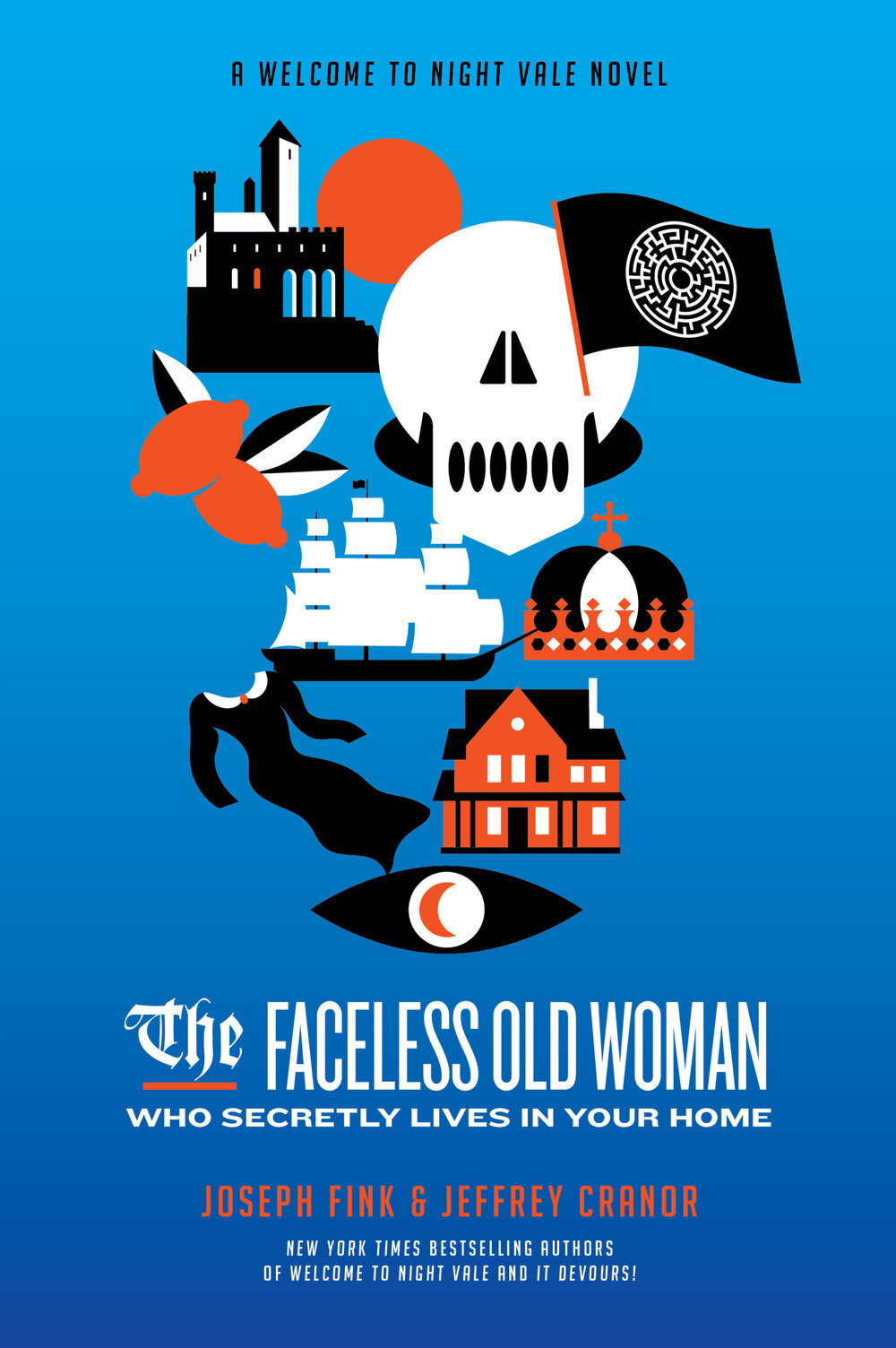Book Review: The Faceless Old Woman Who Secretly Lives in Your Home
Normally, Welcome to Night Vale is precisely my brand of weird. Just a little odd and a little out there, but with an oddly heartwarming core. The eponymous first novel was good; It Devours! was great. Well, I don’t know what I expected from their third novel, but this wasn’t it.
The Faceless Old Woman Who Secretly Lives in Your Home is a story about the titular character, a regular guest on the Welcome to Night Vale podcast. It’s told in two timelines: a past timeline, where the FOW narrates the story of her life ranging from her childhood to a life of piracy and crime, and a present timeline, where the FOW haunts a man named Craig for REASONS.
To be perfectly honest, this novel just didn’t feel much like Night Vale. Night Vale is defined by its deep weirdness, by its true conspiracies and strange gods and bloodstone rituals. This book, for the vast majority of time, is not remotely weird. There’s the occasional reference to Night Vale’s alternate European countries (e.g., Svitz), and there’s a strange secret society mentioned prominently. But aside from those odd mentions, the novel’s main plotline is a straightforward vengeance tale. It’s by no means a bad vengeance tale either, but it’s just…not Night Vale.
The present storyline has the most “Night Vale” feel to it, as the FOW stalks and manipulates Craig, but there’s just not enough of it to feel truly satisfying.
The past storyline has a lot of fun things going for it: piracy, thievery, heists, etc. If you enjoy these things, you will probably enjoy most of the flashback content. It has a little bit of an Ocean’s Eleven feel in places, as the FOW relies on her very talented friends to help her execute her plans. And the vengeance theme pulses under the whole thing, as the FOW seeks revenge for her father’s death at the hands of the mysterious Order of the Labyrinth.
As you might be expecting, the past storyline does dovetail into the present storyline, and it’s honestly not hard to figure out the connection. It definitely removes some of the punch from the ending chapters, as Fink and Cranor drag out the “official” reveal for way longer than necessary.
But the ending is still a pretty dark turn. If you’re looking for a happily ever after, this ain’t it. I can’t even properly term it bittersweet. This book doubles and then triples down on the vengeance theme, and that’s all I’ll say about that.
From a character point of view, the FOW is really at the center of the book. She’s the first person POV, and if you don’t like her, you’re probably not going to enjoy the novel. She’s engaging enough at the beginning as she plans heists and grows from childhood to a shaky adulthood, but the more the book wore on, the harder I found her to empathize with (especially after a certain revelation approximately mid-book). In a nice touch by Fink and Cranor, I don’t think her name is ever given, which is certainly fitting.
The rest of the characters are nice, but not super deep or three dimensional. Fink and Cranor do spare enough time to give a little backstory for each of the FOW’s friends, and there are definitely good small moments (like the FOW teaching Vlad to read/write so he can correspond with his lady love back home). If I’m being honest, the most interesting character is Rebekah; she’s even more interesting than the FOW. A queer Jewish woman with a remarkable penchant for disguise? Who got thrown out of her community for masquerading as a man? Sign me up for THAT book.
And even the villains aren’t really that memorable, at the end. The final confrontation feels like a more or less done deal, since we roughly know how things end up.
This book’s secret weapon, though? Fink and Cranor’s prose. They truly are beautiful and evocative writers, with an eye for description and word choice that not many other authors share. They excel at putting into words precisely the right sensation or feeling for a given scene, and that’s what really rescues the book. Where the plot falters or the characters grow less interesting, the language is still poignant and beautiful. The book has many one-liners or digressions that will make you think, and many passages that still managed to touch me deeply.
Overall, this book was a bit of a disappointment. I gave It Devours! five stars, and I was really hoping to do the same for this one. It’s still a decent read and worth your time if you like a good vengeance story or a good heist, but I’m honestly not sure I’d recommend it to fans of the podcast. Your mileage may vary.
Grade: 3.75/5 stars
Memorable Quote:
“My father’s death smelled much like his life. It smelled like his clothes, and it smelled like his skin, which smelled exactly like his skin when he was alive. It smelled like his hair, and his hands, and the sharp peppery note of the grass he was laying on. The night breeze in from the sea still smelled like ice and salt and a deep organic undercurrent that was the combined smell of all things living in it. In other words, my father’s death smelled most of all like any other night, like any other time that was not the end of everything I had ever known. There was nothing in the smell to indicate just how deep and terrifying was the reality, and that was the worst part of the smell of all.”







